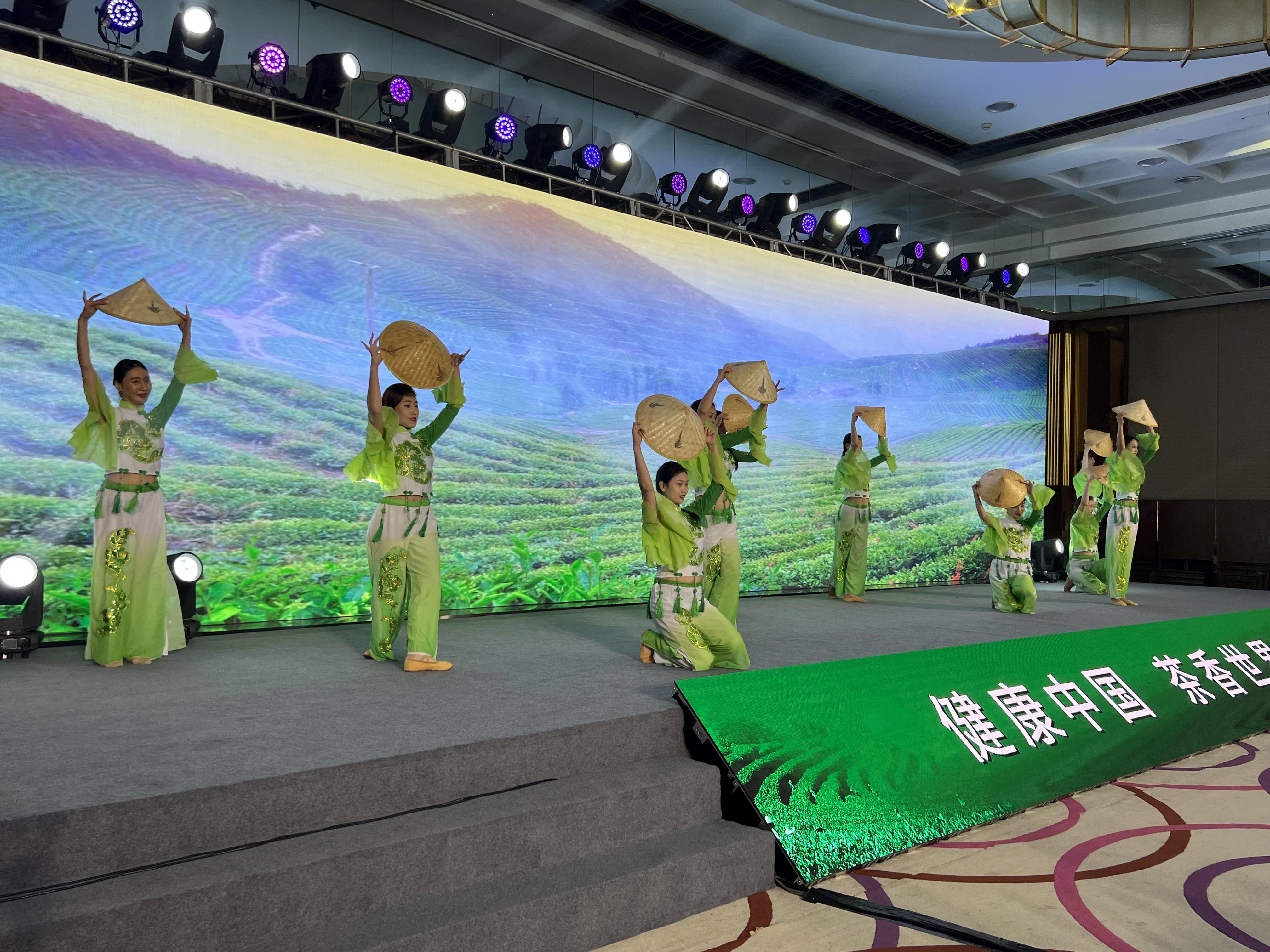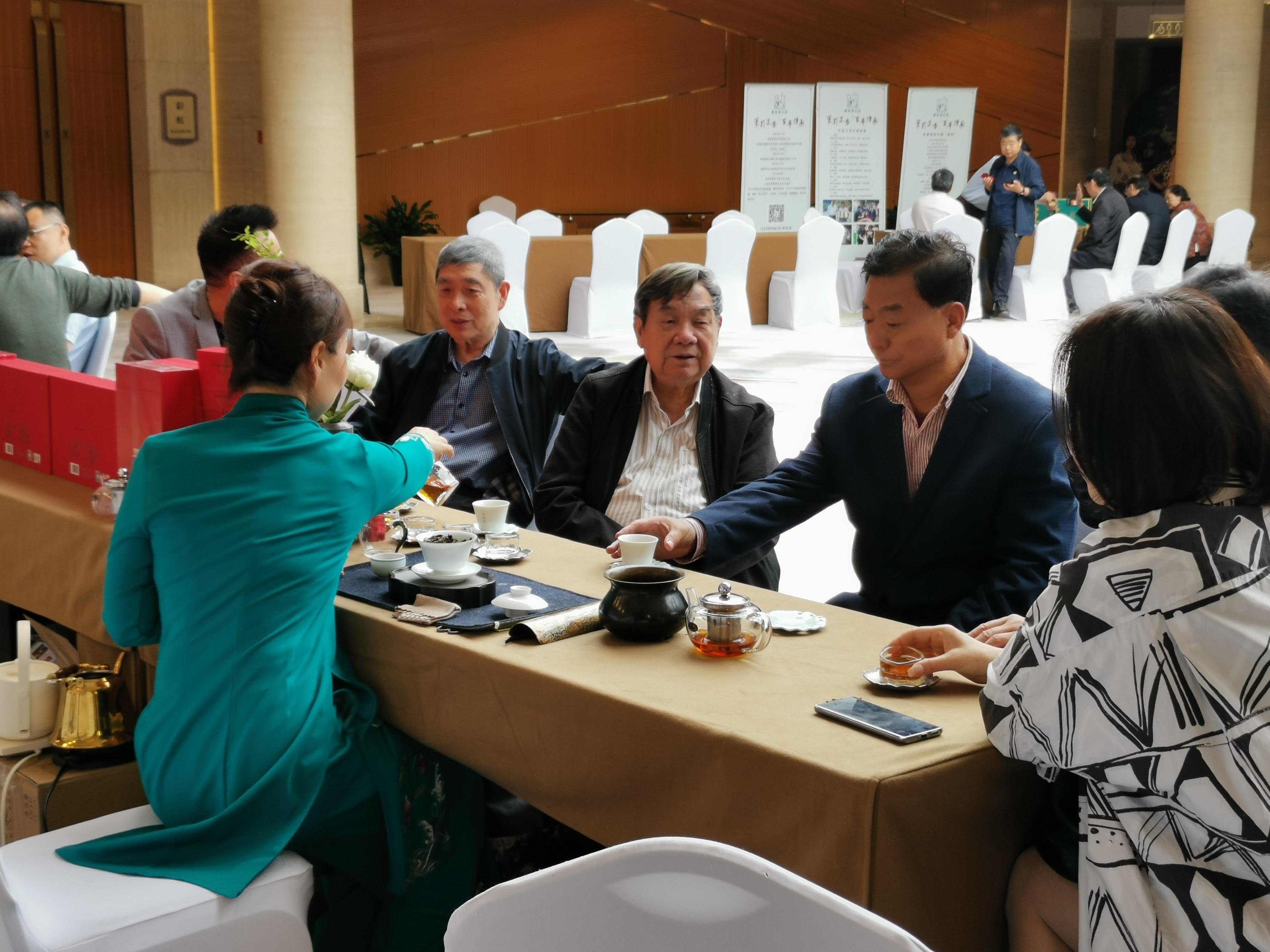 Performers present a dance with a theme based on tea picking at the forum's opening ceremony. (PHOTO PROVIDED TO CHINA DAILY)
Performers present a dance with a theme based on tea picking at the forum's opening ceremony. (PHOTO PROVIDED TO CHINA DAILY)
Tea industry and culture experts stressed at a recent forum in Beijing that coordinated efforts to promote tea culture, the development of the tea industry and the use of technology in the sector are required.
Traditional tea processing techniques and associated social practices in China were inscribed on UNESCO's Representative List of the Intangible Cultural Heritage of Humanity at the end of last year.
The inscription encompasses a total of 44 national-level intangible cultural heritage projects from 15 provinces, autonomous regions, or municipalities. Among them, Fujian province contributes six elements, including Wuyi Mountain rock tea.
According to Ye Yuangao, deputy head of Wuyishan Tea Science Society, this type of tea was one of the earliest varieties to be introduced to the European and American markets during the 17th century.
Along with tea making, rich cultural practices emerged, such as rituals performed on mountains during springtime in the hope of encouraging a bountiful harvest, or chabaixi, whisking powdered tea and creating images on the foam that forms on top.
"We should continuously strengthen the protection, inheritance and development of intangible cultural heritage related to tea, establish a comprehensive protection system, and construct tea culture exhibition halls, heritage sites and training centers," Ye says.
 Guests and delegates learn about, and taste, various types of tea during the forum. (PHOTO PROVIDED TO CHINA DAILY)
Guests and delegates learn about, and taste, various types of tea during the forum. (PHOTO PROVIDED TO CHINA DAILY)
He also suggests it is important to organize performances that center on tea culture, host cultural tourism festivals and expos, and arrange activities that engage tourists in experiencing tea production techniques and exchanging with tea makers and sommeliers.
The forum emphasized that the tea industry encompasses not only tea cultivation and processing, but also a diverse range of tea-related products, including food items that incorporate tea leaves as an ingredient and teas that promote good health.
The latter was highlighted by Tian Xueyuan, a member of the Chinese Academy of Social Sciences, in his speech, saying that he drinks a type of fermented tea daily to maintain well-being.
In order to promote the development of the tea industry, Tian proposes that tea enterprises should uphold tradition while seeking innovation in order to ensure high-quality growth.
"The tea industry is currently facing several issues that are hindering its development. These include a limited range of tea products, a lack of diversity in processing methods, intense competition among similar products, and low added value," Tian says.
"In line with China's high-quality development strategy, the tea industry needs to not only expand production capacity, but also improve efficiency, as well as pursue transformation and upgrading."
During the event, a short film series titled Tea Road was announced. The title refers to an important trade route connecting China with other Eurasian countries, which emerged after the ancient Silk Road.
Set during the Qing Dynasty (1644-1911), the series will depict how merchants from Shanxi and Fujian provinces took tea abroad, fueling the prosperity of the tea trade and China's cross-border commercial exchanges.


